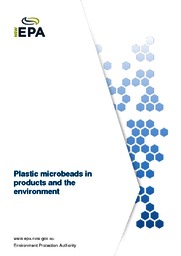These tiny plastic pieces can end up in rivers, lakes and oceans by being washed down sinks or drains after use. Microbeads are so small they cannot be filtered out during normal sewage treatment works.
Once in the water, microbeads have the potential to cause harm in the environment and to human health due to their composition, ability to attract toxins and to transfer up the food chain. Microbeads persist in the environment as they do not readily biodegrade and are almost impossible to remove from the environment due to their size. The best way to reduce their impact is to focus on the points of production and supply, stopping microbeads before they become a problem.
Since 2016, a voluntary industry phase-out has been led by Accord Australasia through their BeadRecede campaign, overseen by the Commonwealth Department of Agriculture, Water and the Environment and the NSW EPA.
NSW microbead ban
While voluntary action has phased out a significant portion of microbeads, the Plastic Reduction and Circular Economy Act 2021 bans the supply of rinse-off personal care products containing microbeads from 1 November 2022.
A rinse-off personal care product is defined as a personal care product designed and intended to be rinsed off immediately or shortly after use. It includes the following:
- shampoo and conditioner
- face masks and face wash, including exfoliants
- hair dye, whether permanent, semi-permanent or otherwise
- toothpaste
- body wash products, including exfoliants.
The regulations may also prescribe other items that fall under this design standard. There are currently no other items prescribed in the regulations for this purpose.
The NSW Government may consider banning the supply of other products containing microbeads in the future.


